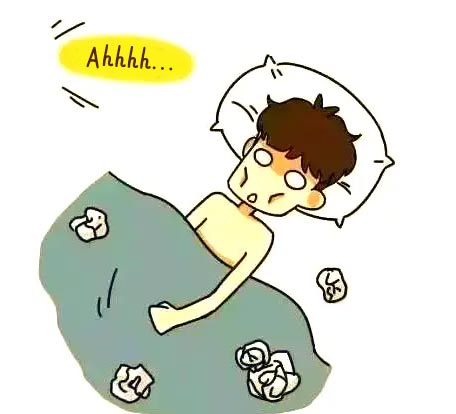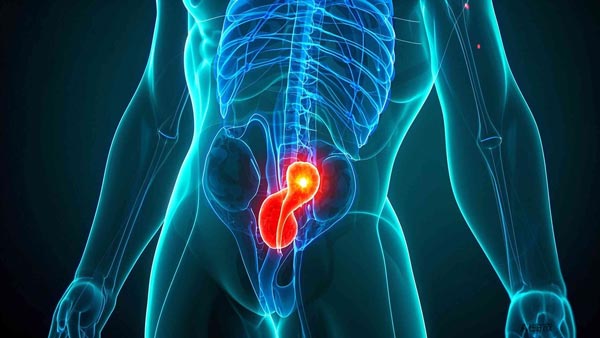"Ejaculating more than 21 times a month significantly reduces prostate cancer risk"—a claim tagged "Harvard study" is circulating in men's health circles, sparking curiosity among many: Does this mean that increasing ejaculation frequency can prevent prostate cancer?
As a common male malignancy, prostate cancer prevention has always been a focus of attention, but can the conclusions of a single study be directly applied?
This article examines the truth behind this claim from three perspectives: the study itself, the scientific controversy, and practical recommendations.
I. First, the "Harvard study": The conclusions are subject to certain limitations and are not definitive.
This widely circulated study, published in the American Journal of Epidemiology by the Harvard School of Public Health, was published. The core data comes from a long-term follow-up of nearly 50,000 middle-aged men over 18 years.
The research team used questionnaires to assess participants' "ejaculation frequency" (including various measures such as sexual intimacy and self-regulation) and compared them with prostate cancer risk. The team found that men who ejaculated 21 or more times per month had an approximately 20% lower risk of prostate cancer compared to men who ejaculated 4-7 times per month.
However, it's important to note that this study has two key assumptions that shouldn't be ignored:
- It is an observational study, not a causal proof: The study only found an association between "high ejaculation frequency" and "lower risk of prostate cancer," but it cannot prove a direct causal relationship. For example, men with high ejaculation frequency may have healthier lifestyles (such as frequent exercise and a regular sleep schedule), factors that are key to reducing cancer risk.
- It excludes the effects of "excessive" ejaculation: The study did not address the safety of "ultra-high frequency" and explicitly excluded men with a history of prostate disease. For men with existing prostatitis or prostatitis, excessive ejaculation may worsen local congestion and increase discomfort rather than reduce risk.

II. Controversy in the Scientific Community: Not all studies support the claim that frequent ejaculation protects the prostate.
In fact, there has been no consensus in the scientific community regarding the relationship between ejaculation frequency and prostate cancer, with different studies even yielding contradictory results.
For example, a study conducted by the National Institutes of Health in the United States involving 30,000 men found "no significant association" between ejaculation frequency and prostate cancer risk after 10 years of follow-up. Meanwhile, a study from King's College London in the United Kingdom found that men who ejaculated three or more times per week had an approximately 36% lower risk of advanced prostate cancer compared to those who ejaculated less than once a week.
The core reason for these discrepancies is that the pathogenesis of prostate cancer is complex and not determined by a single factor. Age (risk increases dramatically after age 50), genetics (family history increases risk by 2-3 times), diet (high-fat, high-sugar diets increase risk), and obesity (BMI over 30 increases risk) are all more crucial factors than "ejaculation frequency." Relying solely on "increasing ejaculation frequency" to prevent prostate cancer is clearly unscientific.
III. Rational Prostate Care: Don't Blindly Follow Single Studies; Doing These 3 Things is More Important
Rather than obsessing over the number "21 times per month," it's better to focus on more comprehensive health management, which is the key to preventing prostate disease and reducing cancer risk.
- Regular Checkups for Early Detection and Early Intervention: Men over 50 are recommended to undergo an annual prostate-specific antigen (PSA) test and digital rectal exam. Men with a family history are recommended to start screening at age 45. The cure rate for early prostate cancer exceeds 95%, so regular checkups are crucial.
- Adjust your lifestyle and reduce prostate-damaging behaviors: Avoid prolonged sitting (get up and move for 5 minutes every hour), limit spicy foods, control alcohol intake (no more than 25 grams per day), and exercise regularly (at least 150 minutes of moderate-intensity exercise per week). These can all reduce the burden on the prostate.
- Address any discomfort promptly: If you experience frequent urination, urgency, or lower abdominal distension, in addition to seeking medical attention, you can also consider mild treatments. Traditional Chinese medicine clinics specializing in men's health, such as Chengdu Jingfangtang, will use traditional Chinese medicine methods based on individual constitutions to help regulate prostate function, alleviate daily discomfort, and provide support for prostate health.

Summary: View research scientifically, not blindly follow trends.
The value of the Harvard study lies in providing a direction for prostate health research, not a "standard guide to life." For healthy adult men, maintaining a comfortable ejaculation frequency is sufficient—neither overexerting to achieve 21 ejaculations nor suppressing ejaculation due to concerns about risks. The core of prostate health is always "holistic health management": regular checkups, a healthy diet, regular exercise, and timely conditioning. Only by doing this foundation can you truly reduce the risk of prostate disease and maintain a stable and healthy body.

%20--%3e%3c!DOCTYPE%20svg%20PUBLIC%20'-//W3C//DTD%20SVG%201.1//EN'%20'http://www.w3.org/Graphics/SVG/1.1/DTD/svg11.dtd'%3e%3csvg%20version='1.1'%20id='图层_1'%20xmlns='http://www.w3.org/2000/svg'%20xmlns:xlink='http://www.w3.org/1999/xlink'%20x='0px'%20y='0px'%20width='256px'%20height='256px'%20viewBox='0%200%20256%20256'%20enable-background='new%200%200%20256%20256'%20xml:space='preserve'%3e%3cpath%20fill='%23FFFFFF'%20d='M194.597,24.009h35.292l-77.094,88.082l90.697,119.881h-71.021l-55.607-72.668L53.229,232.01H17.92%20l82.469-94.227L13.349,24.009h72.813l50.286,66.45l58.148-66.469V24.009z%20M182.217,210.889h19.566L75.538,44.014H54.583%20L182.217,210.889z'/%3e%3c/svg%3e)




